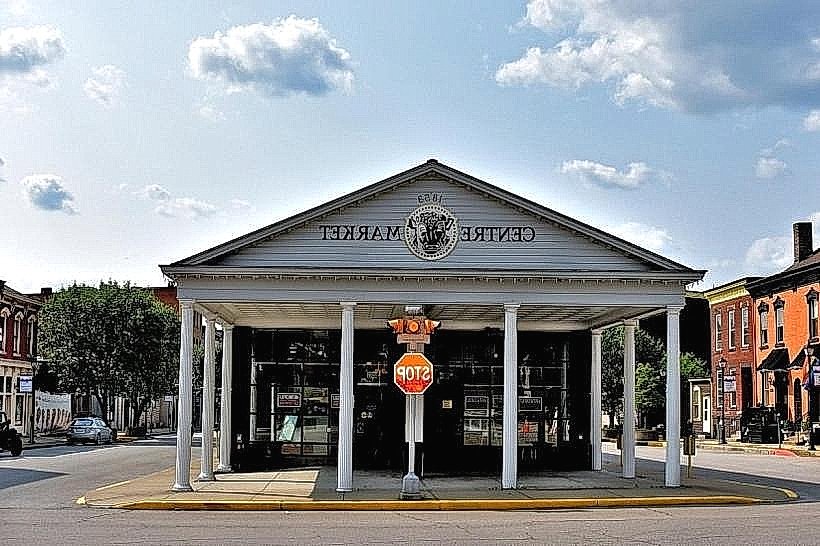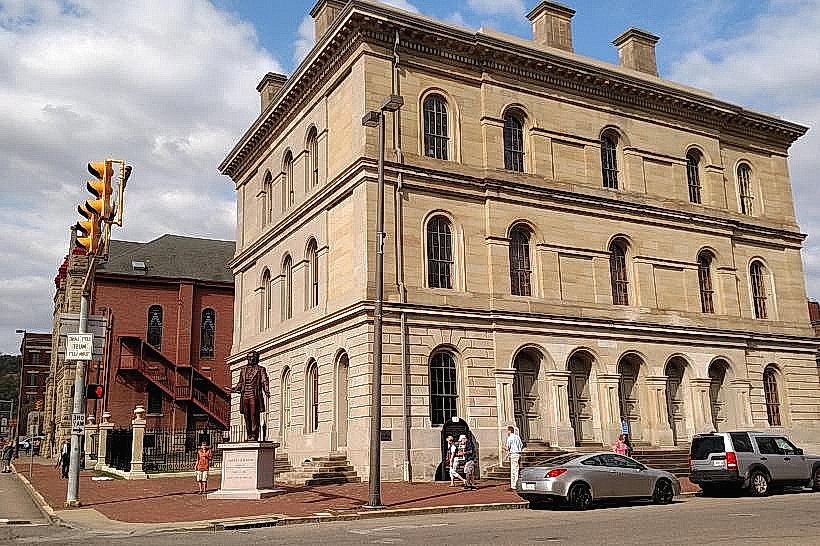Information
Landmark: Elm Grove Stone Arch BridgeCity: Wheeling
Country: USA West Virginia
Continent: North America
Elm Grove Stone Arch Bridge, Wheeling, USA West Virginia, North America
The Elm Grove Stone Arch Bridge is a historic masonry structure located in Wheeling, West Virginia.
This bridge spans the Wheeling Creek, facilitating passage across the waterway.
Visual Characteristics
The bridge is constructed from cut sandstone blocks, exhibiting a light brown to grey coloration. It features a single, pronounced arch with a span of approximately 50 feet. The roadway surface is asphalt, and the parapets are also stone, extending to a height of 3 feet. The overall length of the bridge is 75 feet.
Location & Access Logistics
The Elm Grove Stone Arch Bridge is situated 3.5 miles southeast of downtown Wheeling. Access is via National Road (US Route 40). Parking is available on the north side of National Road, immediately west of the bridge, with capacity for approximately 10 vehicles. Public transport options include the Wheeling Transit Authority Route 10 bus, which stops at the intersection of National Road and Elm Grove Road, 0.2 miles east of the bridge.
Historical & Ecological Origin
Construction of the Elm Grove Stone Arch Bridge was completed in 1891. It was designed by the engineering firm of J.E. and W.A. Johnson. The bridge was originally built to replace an earlier wooden structure and to improve transportation efficiency along the National Road, a key westward expansion route.
Key Highlights & Activities
Pedestrian access across the bridge is permitted. Observation of the creek flow and surrounding riparian vegetation is possible from the bridge deck. Photography of the stone arch construction is a common activity.
Infrastructure & Amenities
Restrooms are not present at the immediate bridge site. Shade is limited to the area beneath the bridge arch during specific times of day. Cell phone signal (4G/5G) is generally available. No food vendors are located directly at the bridge; commercial establishments are present along National Road approximately 0.3 miles west.
Best Time to Visit
For photography, the late afternoon (approximately 4:00 PM to 6:00 PM) provides favorable lighting conditions on the west-facing facade of the bridge. The best months for visiting are April through October, avoiding potential winter ice on the creek and road.
Facts & Legends
A local anecdote suggests that during its construction, a rare bird's nest was discovered within the arch's scaffolding, leading to a temporary halt in work until the chicks hatched. The bridge is also noted for its use of locally quarried sandstone, contributing to its integration with the surrounding landscape.
Nearby Landmarks
- Elm Grove Cemetery (0.3km West)
- Wheeling Creek Park (0.6km North)
- St. Alphonsus Catholic Church (1.1km Northwest)
- Oglebay Institute Mansion Museum (3.8km Northwest)









